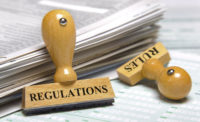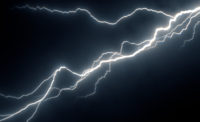Although Winter Storm Jonas is now a part of history, the possibility of severe winter weather still exists this season. The Electrical Safety Foundation International reminds the public that electrical dangers associated with downed power lines, portable generators, and submerged electrical equipment can still cause injuries and deaths once a snow or ice storm has ended. Further, danger can also arise from the use of supplemental heating sources such as space heaters.
ESFI recommends taking the following electrical safety precautions during future winter storms:
- Always assume fallen power lines are energized. Stay at least 10 feet away from a downed power line and any nearby objects it may be touching, such as a fence or a tree limb.
- Contact your utility company immediately to report downed power lines outside your home.
- Never touch a person or object that is in direct or indirect contact with a downed power line. Instead, call 911 immediately.
- Never attempt to move a downed power line – leave it to the professionals.
- Do not operate a portable generator in your home, basement, or garage. Generators can very quickly produce high levels of carbon monoxide, which can be deadly.
- Be sure that the generator is used with a ground fault circuit interrupter (GFCI) to help prevent electrocutions and electrical shock injuries.
- Do not connect generators directly to the household wiring without an appropriate transfer switch installed. Power from generators connected directly to household wiring can backfeed along power lines and electrocute anyone coming in contact with them, including utility lineworkers making repairs.
- Make sure that there is at least one working carbon monoxide detector in your home. Test the batteries at least twice a year, at the same time smoke detector batteries are tested.
- Make sure your space heater has the label showing that it is listed by a recognized testing laboratory.
- Before using any space heater, read the manufacturer’s instructions and warning labels carefully.
- Inspect heaters for cracked or broken plugs or loose connections before each use. If frayed, worn or damaged, do not use the heater.
- Never leave a space heater unattended. Turn it off when you're leaving a room or going to sleep, and don't let pets or children play too close to a space heater.
- Space heaters are only meant to provide supplemental heat and should never be used to warm bedding, cook food, dry clothing or thaw pipes.
- Proper placement of space heaters is critical. Heaters must be kept at least three feet away from anything that can burn, including papers, clothing and rugs.
- Locate space heaters out of high traffic areas and doorways where they may pose a tripping hazard.
- Plug space heaters directly into a wall outlet. Do not use an extension cord or power strip, which could overheat and result in a fire. Do not plug any other electrical devices into the same outlet as the heater.
- Place space heaters on level, flat surfaces. Never place heaters on cabinets, tables, furniture, or carpet, which can overheat and start a fire.
- Always unplug and safely store the heater when it is not in use.
- After a storm, return home during daylight hours, especially if power has not been restored.
- If you smell gas, notify emergency authorities immediately. Do not turn on lights, light matches, or engage in any activity that could create a spark.
- Use caution when restoring disrupted power after a storm. Contact your utility company to report any damage to your electrical service.
- Electrical items such as circuit breakers, fuses, GFCIs, receptacles, plugs and switches can malfunction when water and silt get inside. Discard them when they have been submerged.
- Do not use electrical appliances that have been exposed to water. Water can damage the internal components in electrical appliances and can cause shock and fire hazards in furnaces, refrigerators, washing machines and dryers.
- Have an electrician inspect electrical appliances that have been wet, and do not turn on or plug in appliances unless an electrician tells you it is safe. Electrical equipment exposed to water can be extremely dangerous if reenergized without proper reconditioning or replacement.
- If electrical appliances have been under water, have them dried out and reconditioned by a qualified service repairman.
Be sure to refer to ESFI's complete collection of Severe Weather Safety resources.






